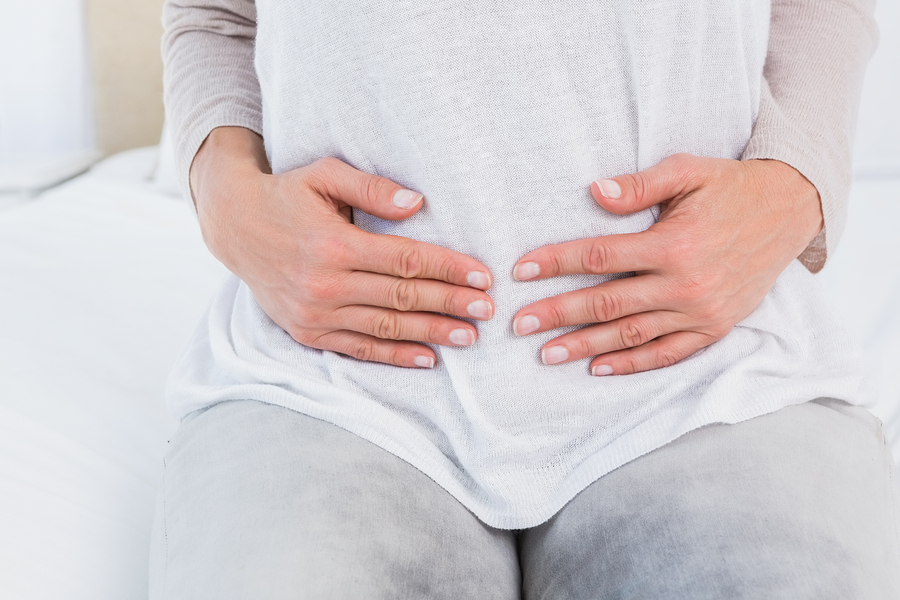Treat symptoms of IBS with the FODMAP Diet
Up to one in five of us are thought to suffer from IBS at some point in our lives, leading to digestive problems, pain and bloating. If you suffer from IBS, changing your diet to the new FODMAP plan could make all the difference.
Symptoms like bloating, abdominal pain, wind, diarrhoea and constipation go hand-in-hand with IBS. They’re not only painful and sensitive, but can be embarrassing. A new diet approach which has achieved great results in reducing these symptoms is good news for IBS sufferers.
The FODMAP diet is all about cutting down your intake of foods containing certain types of carbohydrates – fermentable oligosaccharides, disaccharides, monosaccharides and polyols (hence FODMAP). Your gut can’t easily break down and absorb these carbohydrates, which can lead to them fermenting.
The FODMOP diet was created after a number of years research, and launched in Australia. It’s been effective at improve gut systems for about 70% of people with IBS who try it. The FODMAP diet approach to treating IBS symptoms is now popular around the world, and is becoming more recognised by GPs in the UK as a way to treat IBS.
Some of the most common foods that you need to cut down on with a FODMAP diet are:
- Certain dairy foods like fatty milk, ice cream, soft cheese, and yoghurt
- Legumes like beans, hummus and lentils
- Bread and bread products, pastries, and biscuits made with wheat, barley or rye
- Wheat pasta
- Some fruits, like apples, blackberries, peaches, and pears
- Certain vgetables like cauliflower, mushrooms, garlic and onion
- Honey
- Sherry and port
People on FODMOP might also need to limit themselves when drinking wine, beer or fruit juice, and when eating chocolate, avocado, broccoli and sweet potato.
While that lists seems long and has some very commonplace foods on it (onion and garlic being particularly hard to avoid), there are lots of foods you can still eat on the FODMAP diet. These include:
- Dairy like butter, brie, cheddar, and mozzarella
- Eggs
- Sorbet
- Most types of meat and fish, like beef, chicken, pork and tuna
- Cabbage, carrots, courgette, cucumber, spinach, tomatoes and potatoes
- Bananas, blueberries, raspberries, lemon and orange
- Peanut butter, soy sauce, marmalade and mayonnaise
- Gluten free alternatives to wheat pasta, bread and biscuits
There are lots of everyday foods on the FODMAP restricted list, so it is vital to plan your diet to make sure you’re getting the right nutrients. If you have IBS and think FODMAP might be for you, visit your GP and see if they can refer you to a professional dietician to help you with this.
Would you consider cutting down on high FODMAP foods to reduce the symptoms of IBS?
Disclaimer
All content on Silversurfers.com is provided for general information only, and should not be treated at all as a substitute for the medical advice of your own doctor or any other health care professional. Silversurfers will not be responsible or liable for any diagnosis made by a user based on the content on www.silversurfers.com and we are also not liable for the content of any external websites or links from or to Silversurfers to any other websites. Please always consult your own doctor if you’re in any way concerned about any aspect of your health.
Rachel - Silversurfers Assistant Editor
Latest posts by Rachel - Silversurfers Assistant Editor (see all)
- Chocolate dipped strawberries for Easter - April 13, 2025
- Easter activities for grandchildren - March 31, 2025
- Songs about Mum for Mothering Sunday - March 26, 2025
- The best of Diana Ross - March 25, 2025
- Elton John’s Greatest Hits Playlist - March 24, 2025




















